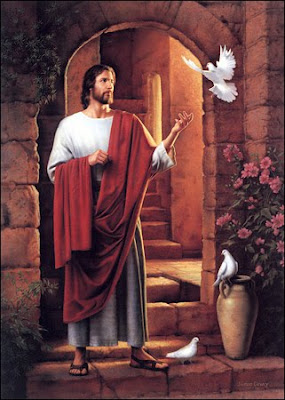Qoheleth is the Hebrew name for Ecclesiastes. The name has many meanings: One who conveys an assembly, member of an assembly, official speaker in an assembly, head of an assembly of wise men, preacher, debater, and the great collector of sayings. The author is unknown although up until the nineteenth century it was believed to have been written by Solomon because Qoheleth is referred to in this book as King David's son. There are social conditions mentioned in this book which are contrary to what is known about the Israelites in Solomon's day, therefore, Solomon's authorship is unlikely. The date of this book is fixed somewhere around the close of the third century B.C. The word "Vanity" is translated as "a breath" or "a vapor" and "Vanity of vanities" is the Hebrew way of saying "the merest breath". In order to comprehend the meaning of this Reading, it's important to note that at the time of this writing, the idea of an afterlife was not widely accepted or taught in the Hebrew creed. The theology of the time was that the infinitely good God rewarded obedience to His laws with temporal goods and punished disobedience by denying or taking away temporal riches. This theology is perplexing to Ecclesiastes or Qoheleth and is the general theme of the entire book. The rewarding of temporal gifts which reflect the teachings of that particular time in history led Qoheleth to believe that wealth, riches and the pleasures of this life were an inadequate reward for obedience to the Mosaic Law. In the grand scheme of things the author felt that humanity's labor, the accumulation of wealth and living for the pleasures of this life, only to have it all come to a screeching halt because of death was unfulfilling and disappointing.
Second Reading, Colossians 3:1-5, 9-11
Saint Paul is referring to that mystical death and rising to a new life which occurs at Baptism when he writes, "If you were raised with Christ". At Mass during the Eucharistic Prayer the priest says: "Sursum corda -- Lift up your hearts". Saint Paul assures us that we are called to that constant lifting up of our hearts to our Lord, keeping our thoughts on what is above and not what is on earth until that day when we the members are joined with our Head in eternal glory. Review once again the parts that Paul refers to as earthly: immorality, impurity, passion, evil desire and greed. We are not strangers to any of these things. We are either guilty of these things ourselves or at least are unfortunate witnesses of such things in our culture. In our present existence, we're all labeled in one way or another: Black, white, Hispanic, Republican, Democrat, Catholic, Protestant, Jew, Muslim, conservative, liberal, moderate, blue-collar, white-collar, and the list goes on and on. While these labels may help to identify who we are, humanity's brokenness also makes them a source of division and prejudice. Saint Paul exhorts us to put these things to death and focus on the new self, which is being renewed and transformed. In the end, when all is said and done, all of us will have only one label that really matters: "A child of God". And surely it is more beneficial for us to make that the only label that really matters now.
Gospel, Luke 12:13-21
Gospel, Luke 12:13-21
There are possibly two meanings to being "rich in what matters to God". Most certainly it can be applied to storing up treasure in heaven, living one's life focused on eternal riches. It could also be referring to how the riches or material goods of this life are handled. In other words, are the abundances of this life hoarded because of greed or are they distributed to help those who are less fortunate? Saint Ambrose says that the hands of the poor, the houses of widows, are storehouses that endure forever. In this Gospel, Jesus uses a parable which is a reminder that all the material wealth possessed in this life cannot add a single minute to our lives. Jesus has the answer to Qoheleth's concerns in the First Reading: Yes there is indeed much more to life than the material rewards obtained; and there is without a doubt an afterlife. The message in the Gospel since beginning this "Journey Narrative" several weeks ago is to stay focused on heaven. If heaven is to be our focus, then surely this life has inflicted all of us from time-to-time with attention deficit disorder. It's that old battle of flesh versus spirit. The flesh has a distinct advantage because it can behold its desires with the physical senses. What the spirit desires is intangible and can seem elusive. Exercising the spirit requires a certain denying of the senses. For heaven to be our focus and desire, the physical senses cannot be permitted to dictate policy. When we deny ourselves the influence of the senses, the eyes of faith see with confidence, for example, that what we behold is not bread -- it is Jesus. What we behold is not wine -- it is Jesus. This is why prayer is so important. At prayer, the affairs of the spirit are in charge while the flesh takes on a role of a disruptor by means of distractions. But through perseverance, the spirit grows in love for the Lord; and this growth renders the flesh less obtrusive. Consider what happens whenever you go to the cinema to watch a movie. You have to sit through all the previews of other films before you get to the feature film. Whether the previews are good or bad, in reality your thoughts and desires are focused on the feature film. Heaven and eternal life is our feature film. While it is necessary to experience the previews of this life, it is much easier to bear its pains while also not being dependent upon its rewards when one's ultimate desire is the beatific vision.




























